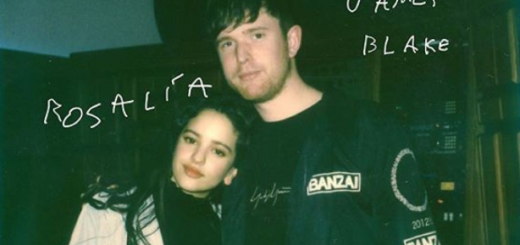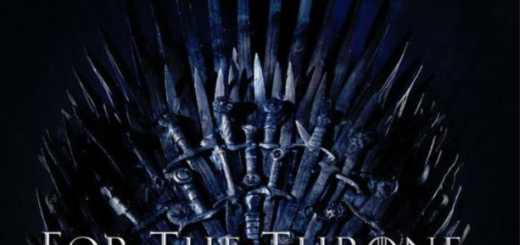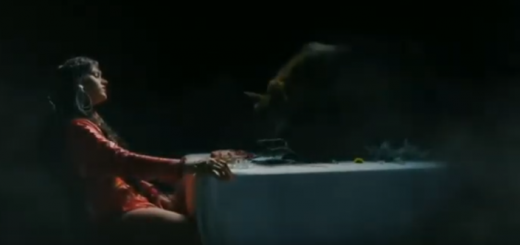DIABLO by Rosalía Lyrics Meaning – The Lure of Transformation in the Spotlight
Lyrics
Si lo que pasó, ya no pasará
Si Dios te lo da, te lo quitará
Si Dios te lo da, te lo quitará
Y cómo tú ninguna, brillas como la luna
Brillas como mis prendas
Quiero que tú me entiendas
La que sale por TV
No es la que yo conocí
No es la que yo conocí
Ahora pisas Lamborghinis
Y cómo tú ninguna, brillas como la luna
Brillas como mis prendas
Quiero que tú me entiendas
La que sale por TV
No es la que yo conocí
No es la que yo conocí
Yo conocí
De la noche a la mañana
No es que yo cambié
De la noche a la mañana
Mi vi’a se me fue
Y cómo tú ninguna, brillas como la luna
Brillas como mis prendas
Quiero que tú me entiendas (sí)
La que sale por TV
No es la que yo conocí (no)
No es la que yo conocí (no)
Pisas Lamborghinis
Y cómo tú ninguna, brillas como la luna
Brillas como mis prendas
Quiero que tú me entiendas
La que sale por TV
No es la que yo conocí
La amistad la rompe el diablo, diablo
Guita, guita, guita por los suelos
Na’ les importa si corren ceros
Yo mi lealtad nunca la pierdo
Ni por el dinero
Guita, guita, guita por los suelos
Na’ les importa si corren ceros
Yo mi lealtad nunca la pierdo
Ni por el dinero
(This must be the other side of me)
(You are running to the light)
(It’s night and day)
(It’s night and day)
(It’s night and day)
(It’s night and day)
(It’s night and day)
(It’s night and day)
(It’s night and day)
Y como tú, ninguna
Brillas como una luna
Brillas como mis prendas
Quiero que tú me entiendas
La que sale por TV
No es la que yo conocí
No es la que yo conocí
Ahora pisas Lamborghinis
La bala de Dios juega en la ruleta
Tú no has vigilado, se ha ido tu pureza
Ya no sé quién eres, diablo
No sé ni quién eres, diablo, diablo
Spanish sensation Rosalía once again captures the zeitgeist with her ethereal track ‘DIABLO,’ weaving through a labyrinth of fame, transformation, and the loss of innocence. The song is a poignant meditation, replete with religious symbolism and a critique of the transformative power of the limelight, bathed in the hauntingly beautiful melodies that have become Rosalía’s signature.
Through ‘DIABLO,’ Rosalía reveals the duality of existence and the internal conflict sparked by rapid change—be it personal evolution or the metamorphosis fame imposes. The track isn’t just music; it’s a story, a reflection, a warning siren for the soul’s integrity amidst life’s tumultuous tides.
Dancing with the Spotlight: A Tale of Two Selves
Rosalía’s ‘DIABLO’ epitomizes the classic arc of transformation that accompanies stardom. The refrain, ‘Si lo que pasó, ya no pasará’ (What has happened, will not happen again), hints at irreversible changes, implying a departure from the past that cannot be undone. The lyrics suggest a rift between the person she knew—presumably a reference to herself or a close peer—and the person transformed by the glare of the public eye.
The contrast is stark; the simplicity of yesteryears stands overshadowed by the trappings of success, ‘Ahora pisas Lamborghinis’ (Now you step on Lamborghinis). The Lamborghini, a symbol of opulence, suggests both the power and the superficiality accruing to a life lived in the spotlight—glittering, but perhaps hollow.
The Seductive Moon: Glitter, Glamour, and Isolation
The imagery invoked by ‘brillas como la luna’ (you shine like the moon) does not simply denote radiance but also the cold isolation that accompanies such brilliance. Rosalía laments that fame has recast her—’No es la que yo conocí’ (Not the one I knew)—pointing towards an emotional void which fame has inflicted upon the person she once knew.
This repeated line, ‘brillas como mis prendas’ (You shine like my jewelry), could reflect the superficial reaction others have to wealth and fame, highlighting a shift in relationships that no longer stems from personal connection but rather from the shiny allure of success and material gains.
The Fragile Grip on Loyalty in a Material World
Rosalía doesn’t mince words about her stance on loyalty amidst riches: ‘Yo mi lealtad nunca la pierdo / Ni por el dinero’ (I never lose my loyalty, not even for money). The repetition of ‘guita, guita, guita por los suelos’ (Money, money, money on the ground) expresses disdain for those who scatter their allegiances as carelessly as coins. Her commitment to keeping her moral compass aligned despite the enticements of success serves as a potent counter-narrative.
This moral stance roots Rosalía’s work in a sense of integrity, suggesting that for her, art and persona are indivisible from ethics. It’s a silent protest against the corrosion of values in the face of modern-day avarice and a reminder of the seductive dangers of ‘the other side of me,’ as she whispers hauntingly towards the track’s finale.
Unearthing Hidden Meanings: The Devil in the Details
‘La amistad la rompe el diablo, diablo’ (Friendship is broken by the devil, devil) alludes to a deeper theme of betrayal by one’s own or another’s hand. The devil here is not merely a religious figure but a metaphor for the malevolent forces that break the sacred bonds of trust and comradeship.
This betrayal extends to self-betrayal as well, as the subject of the song navigates their newfound disguise. Rosalía seems to warn of the ‘bala de Dios’ (bullet of God) lurking in the game of chance, suggesting that divine or karmic justice is in play, awaiting those who stray too far from their essence.
Echoes of a Dual Existence: The Most Memorable Lines
‘This must be the other side of me / You are running to the light / It’s night and day,’ whispers Rosalía, painting a duality that haunts the very core of ‘DIABLO.’ The constant cycling between night and day symbolizes the oscillation between true self and public facade, a theme that resonates with anyone who has felt the friction between inner integrity and outward expectations.
These lines, breathed out in an almost ethereal cadence, highlight the psychological tension and intimate inner turmoil that accompanies growth and change, especially those fostered by fame’s harsh spotlight. By unveiling raw, internal dialogues, Rosalía manages to do more than simply entertain; she invites her audience to a deeper self-exploration.








